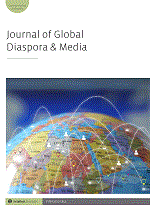
Full text loading...

The Black Lives Matter (BLM) protests during the summer of 2020 provide an opportunity to reassess the relations between African Americans, Caribbean and African immigrants. I argue that while the social justice protests galvanized the Black community to fight against police brutality and systemic racism, the process began earlier and was significantly impacted by the advent of social media. Using Stuart Hall’s work as a framework, I argue that in today’s digital environment, celebrity influencers such as Barack Obama, Beyonce, Trevor Noah and Rihanna have used their formidable social media platforms to upend racially divisive media messaging about cultural identities of African Americans, Caribbean and African immigrants. I also explore broadening the concept of cultural intermediaries to recognize these influencers who bypass traditional intermediaries and connect directly with their followers to bridge the cultural identity divide.

Article metrics loading...

Full text loading...
References


Publication Date:
https://doi.org/10.1386/gdm_00032_1 Published content will be available immediately after check-out or when it is released in case of a pre-order. Please make sure to be logged in to see all available purchase options.